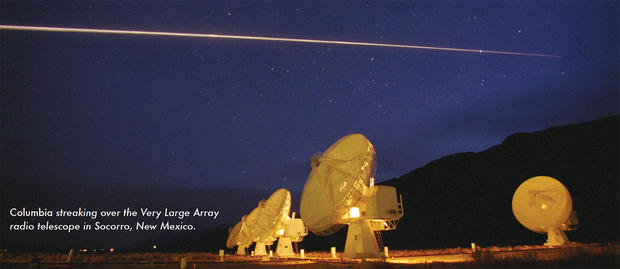Astronaut Leland Melvin Talks ‘Ad Astra,’ Space Travel and Humanity’s Future in the Final Frontier – Space.com
Warning: Spoilers ahead if you haven’t seen the space thriller “Ad Astra.”)
Former NASA astronaut and NFL wide receiver Leland Melvin sat down has some deep thoughts about humanity’s future in space and how it’s depicted on the silver screen in films like the recent sci-fi thriller “.”
As space agencies like NASA and companies like SpaceX and Boeing work to return humans to the moon and land people on Mars, it’s interesting to reflect on how science fiction matches up to real-world progress.
Recently, at a media event at Spaceport America celebrating the DVD and Blu-ray release of “Ad Astra,” Melvin shared his thoughts on the film and how it lines up with the realities of human spaceflight and the psychological effects of space travel.
Watch: See a Sneak Peek of ‘Ad Astra’ Moon Action!
Our future in space
“Ad Astra,” paints a picture of a future in which humankind has built elaborate lunar bases, complete with corporate franchises and a complex, underground Martian base. And, while we are still several major scientific milestones away from this being reality, according to Melvin, we might start getting close pretty soon.
“We’re talking about 2024 now with NASA talking about putting the first woman and man back on the moon, and I think with this energy, with this effort to do this, that [a lunar base] could happen, I’d say, by 2030,” Melvin told Space.com at the event, referencing NASA’s Artemis program, which aims to land the first woman and the next man on the moon by 2024. Melvin explained that this achievement would depend on what you think of as a lunar base.
While the astronaut/athlete didn’t comment on when you might see your favorite franchise opening on the moon, he did say that he thinks humans will be having extended stays on the lunar surface by 2030.

“Ad Astra,” the space thriller starring Brad Pitt, is an out of this world adventure to Neptune and back. It launches to digital video Dec. 4, and DVD and Blu-Ray Dec. 17.
Putting humans on Mars, however, Melvin says will take quite a bit longer.
“Some people say 2030, some people say 2025. Realistically, in the mid 2030s maybe;I don’t think it’s a habitat there, but I think it’s more people, a space station, going down doing some exploration, coming back up. It depends on the money, it’s all about the money,” he said.
Mental health and planetary protection
Melvin thinks that, as we look to launch to the moon and travel to Mars (or even beyond), it’s important to take mental health and planetary protection into account. In “Ad Astra,” Brad Pitt’s character Roy McBride suffers from the negative psychological effects of spaceflight as he travels to the farthest reaches of the solar system.
Isolated in a spacecraft (with no crew left alive to keep him company), McBride’s mental stability begins to degrade, as is shown in his behavior and in his regular psychological check-ins that he completes using a stick-on monitoring device.
While Melvin describes how he only flew to space on short duration missions, he emphasized that it is important that astronauts have internet access, so that they can talk to their loved ones back on Earth. ” I think it’s really that psychological support through your family, through the shrink, through everyone that helps you get through those times,” Melvin said about the difficult moments that can arise for astronauts in space.
“I think that was the bigger problem, he was by himself,” Melvin said about McBride’s isolated experience in the film, adding that “after he met his dad, his dad was like ‘I didn’t care for you anyway, I don’t want you,” which seemed to add significantly to McBride’s deteriorating mental state.
In addition to keeping in mind the mental well-being of future astronauts, Melvin also noted that space agencies are considering how we treat the other worlds we travel to. He noted that, as we land on the moon and other planets, space agencies will have to make sure that we don’t trash them, that we don’t bring our Earth problems to space and just dump them on other worlds.
Cosmic pups
In addition to pondering humanity’s future in space and how it lines up with what we’ve seen in science fiction, Melvin shared that, if he had the opportunity to travel anywhere in our solar system, he “would probably go to the constellation Canis Minor and just hang out there for a little while and look at the pups out there.”
Melvin famously took an astronaut portrait with his two rescue pups and other of his dogs in his life. He has quite the reputation as a serious dog-lover.
Gohd attended the ‘Ad Astra’ media event for Space.com on a trip paid for by 20th Century Fox.
Follow Chelsea Gohd on Twitter @chelsea_gohd. Follow us on Twitter @Spacedotcom and on Facebook.







